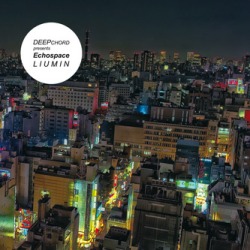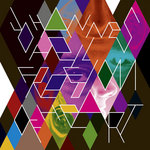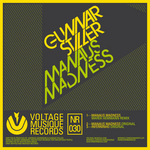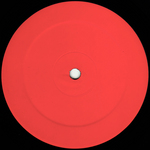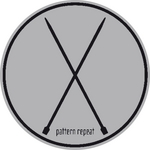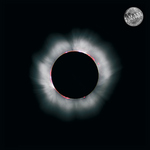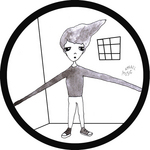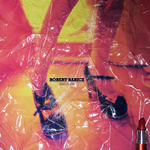
Photo of Tokyo from photoeverywhere.co.uk
The genre name techno may be the one of the more misapplied terms in mainstream Western culture. Unfortunately, it’s become a loaded word used to describe any and all forms of electronic music, 90% of which has nothing to do with actual techno. Actual techno… that’s a pretty loaded term as well. A genre that began decades ago in basements of Detroit, then exploded globally, and has since been tinkered with, experimented with, evolved and expanded to incorporate a range of sounds, probably does not warrant such strict definitions of “actuality.” Purists might tell you differently of course but invariably genre lines are pretty blurred in electronic music, particularly nowadays. So what is it? I’ll give my definition (which may not be worth much, but since I’m writing the column…): techno is a genre of electronic music that adheres to a 4/4 “four to the floor” drum pattern usually at a tempo of 120-140bpm and generally incorporates repetition with regards to bass lines, synths, or simply other percussion. Melody may be present but even then it is usually based on repetitive motifs as well. Truthfully, this sounds like it could describe any electronic music but once you hear it for a while it becomes much easier to pick it out.
So that’s the brief (very brief) introduction to techno. Each month, this column will include a roundup of techno releases from that month. I know that this July edition is a couple weeks late, but I figured better late than never to start off. Most techno releases will be 12”s as is the industry norm but occasionally DJ mixes and full length albums will also be reviewed. Every column will also include commentary and news as well as spotlights on artists or labels that have had a particularly good month. Most importantly, I want the music to speak for itself.
SPOTLIGHT RECORD OF THE MONTH
Liumin
Modern Love | LOVE064
Buy at Juno
So after giving a rough definition of what “techno” is, I go and give July’s Record of the Month to an album that, truth be told, doesn’t adhere to that definition. Liumin by Echospace (or alternatively styled Deepchord presents Echospace) contains very little melody or anything to dance to at all. The techno here is more of an aesthetic rather than a genre binding. The steady pulse of 4/4 bass drums and the occasional glimmering of synths racing by may be the only reminder of the techno groundings, but it’s nonetheless there. Beyond that is a whole other world of sounds, drenched in dubby reverb that sounds alien yet strangely earthly at the same time. As for the artist, Echospace is a collaboration between two guys, Steve Hitchell and Rod Modell, the former from Chicago and the latter from Detroit (sounds like a fairy-tale techno pairing based on locations alone). The focus of the collaboration is to make dubbed out techno that entrances the listener and invites him on a journey through various soundscapes.
John Cage once remarked in an interview that he didn’t need sound to be warped and manipulated by people in an effort to make patterns and emotions. The traffic outside, or the rustle of leaves, or the hum of an air conditioner: all provide their own stories, which to an acute listener, tell even more than the bang of a snare or the chords of a guitar. This is the inspiration behind field recordings and their use in music, something that Echospace do so remarkably well. To be fair, there is the pulsing beat of bass drums and the texture of synths throughout their music, but these provide more of a context for the sounds and effects that whirl around them, rather than serve as a focal point of the music. Hitchell and Modell first burst onto the scene under the Echospace moniker with 2007’s The Coldest Season, an album which made quite a splash around the blogosphere. It was, and still is, one of the greatest pieces of dub/ambient/reverby “techno” I’ve heard. The album thrust you into an icy bath of sound, and noise, and occasionally music. It was a soundscape shrouded in wind and arctic chills, brought to life by the analog equipment used by Hitchell and Modell and the tightly sequenced music that accompanied the recordings. The downside of having such an acclaimed debut, however, is the burden it creates on your sophomore effort, a downside that Echospace do not quite overcome.
For the most part, Liumin goes in a new direction. Composed of field recordings from Tokyo (if you’re so inclined the second disc contains these recordings) the album is teeming with the buzz of subways, traffic, people talking, and every other sound you could hear in an urban setting. Ideally, I’d wander aimlessly the subways and stations of some urban center while listening to this album; it would be the perfect soundtrack. Each song seamlessly blends into one another, usually by virtue of train or subway recordings, as if the space between each track is actually a station or platform into the next. And upon disembarking, the bass lines and drums, usually tricked out in dubby reverb, become your metro. When the pulsing drums of “Summer Haze” kick in, it’s about time to kick your feet up and look the window at the sites. Slowly the stations and trains become more busy with the next few songs until on “Firefly” you finally feel alone in your cabin (I know, I know, in Tokyo that would never happen). It’s a feeling that carries through the album too: a paradoxical loneliness that in many ways represents the urban world. The song “Float” shows this well… it sounds rather creepy, not in that scary-horror-movie sense, but it that foreigner-alone-in-a-new-land sense. If Liumin gives us Tokyo it gives it from a warped perspective, as if we are the visitor coming into a city that is not altogether familiar or friendly.
Trust me I could make up stories all day long with this set as the soundtrack. These are the kinds of images I get while listening to it, but they are by no means universal. This is solitary stuff, the kind of music that inhabits your imagination and consciousness. Echospace don’t make songs that you throw on when you want a good time or when you’re relaxing with friends. If we go down the slippery road of directly comparing Liumin to The Coldest Season, the former does not carry the monumental other worldliness of the latter. Liumin is not as encapsulating or massive, perhaps it doesn’t need to be, but the fact remains when dealing with this sort of music, how important is that quality? In time, Liumin will probably fade out when the The Coldest Season never quite leaves. I’m unsure as to what this means for Echospace as a collective. They’ve set the bar so high for themselves in the past that I’m unsure whether future releases with live up to their first or even this, their second.
Deepchord present Echospace – “Firefly”
Freedom of Heart
Cocoon Recordings | COR12″077
Download at Juno
There’s been a darkening tone in techno recently. Influences from dub and experimentation have become more prevalent (think Echospace or Alex Smoke) as has the uncompromising hardness from labels like Sandwell District and Ostgut Ton. I’m not saying this is a bad thing either, I quite like most of the aforementioned music and even made Echospace’s Liumin my Record of the Month. It’s just that techno has blended with all sorts of avant-garde and hard-edged experimentation that it starts to bend what is techno as well as its accessibility. Johannes Heil, however, is having none of that. He’s no stranger to techno either, having cranked out hits since the late 90’s. This is the first solo release Heil has done for Cocoon Recordings but I have to say it is quite a natural pairing. This is fun techno, the kind of techno that if it doesn’t at least make you bob your head and want to dance, you must be a bitter old man. Or a zombie. The title track “Freedom of Heart” is the classic Cocoon sound; repetitive and hypnotic techno that expertly ebbs and flows. It’s part disco, part Detroit, part tech-house, and all awesome. It’s not big on surprises or buildups either, sticking more to the tried and tested techno formula of the ever flowing beat. And really when you pull off that formula this well, there really isn’t a need to deviate all that much. The other song on the record, “Could This Be,” is also, similarly, a fun song. Repetition is the name of the game here, with a simple bass riff that virtually never changes 10+ minute track length. Throw in the ever popular keyboard stabs, vocal samples, and an acid synth and you get a slick made-for-clubs techno hit. It may not be as interesting as “Freedom of Heart” but the two songs go together quite nicely. Heil will be releasing his full length album Loving next month, and Freedom of Heart is but a teaser for it. Given the quality of this release however, Loving looks like it could be a winner.
Manaus Madness
Voltage Musique Records | VMR 030
Download at Juno
Hailing from where else but Berlin, Gunnar Stiller is probably more renowned as a DJ than a producer. He’s a regular at many of Berlin’s top clubs and has been spinning his way around Germany for many years. As for his songs, they usually straddle that nebulous medium between techno and house, and this record is no different. The past couple years has seen most of his releases come on Voltage Musique Records, including his outstanding track “Chelios” from 2009. On this EP he delivers two tech-house tracks with one Marek Hemmann remix as well, and truth be told Stiller is upstaged by Hemmann, and not only in terms of relative fame. Marek’s remix of “Manaus Madness” is a much tighter and solid song. The original merely flirts with melody, but in the end seems rather aimless, making it very difficult to get into the track at all. Hemmann solves this problem by reinventing the bass line and tweaking the percussion to transform the song into an earworming classic. It’s just another addition to what have been a good twelve months for Hemmann who has had a string of hot releases starting with his LP last year and his stellar Left/Right EP earlier this year. Needless to say he’s definitely a good man to have delivering remixes on your releases. Finally, “Inferninho,” the last track on here, is a weird one to say the least. Everything is chugging along rather ordinarily when suddenly there’s a very odd introduction of a steely acoustic guitar halfway through the song. It’s not even a typical guitar sound, but a jangly one with slides and all. Surprisingly when the beat kicks back in, it’s not nearly as jarring as it might seem. In fact it’s quite nice, and definitely makes “Inferninho” the better of two Stiller efforts.
Gunnar Stiller – “Manaus Madness (Marek Hemmann Remix)”
MD2
MD2 | MD2
Download at Juno
Good luck catching this release on its vinyl release, seeing as it was a hyper-limited white label (or more specifically red label) limited to only a few hundred copies. It’s always seemed a bit pretentious when artists/labels limit releases to that low of a number (not all of us live in Berlin to buy our things), but fortunately in these modern times we can find the songs selling online for pretty cheap, and MD2 is no exception. This record’s details are kept pretty cryptic: the artist, album name, record label, catalogue number, and song names are all MD2. But I’ll let you in on the (not so very) secret: MD2 is Mike Dehnert, a Berlin resident DJ (aren’t they all?) with a penchant for the hard dark side of techno. There’s definite parallels to be drawn between his music, that of the Berghain artists, and those of Sandwell District. It’s become a popular sound recently, or at least trendy, and for fans of the style, Dehnert certainly delivers. The first track (MD2.1) pounds with its overdriven bass and mechanistic percussion, relentlessly and gradually developing into banging dark beat sure to catch the attention of any Dehnert fans or underground techno fans in general. It’s a solid track, and one of the better darker techno songs of the past couple months. The second track is a bit more off kilter. It’s not quite the 4/4 beat everyone is accustomed, so is clearly material for the more adventurous DJ’s. Then again, if you’re playing Dehnert, you’re probably more adventurous as it is.
Pattern Repeat 03
Pattern Repeat | Pattern Repeat 03
Download at Juno
Remember the details from the MD2 release above? Well good, because this release follows almost the exact same pattern (pattern repeat? Whoa.) Hard, abrasive techno? Check. Eerie dubby influences? Check. Cryptic and repetitive cataloguing? Check. Yes folks, once again the artist, album name, songs, label, catalogue number are all Pattern Repeat (or some iteration of it). And if you liked the MD2 record, this one is also bound to please. As for who exactly Pattern Repeat are, it’s Dennis Bøg and Kenneth Christiansen, two Danes (if you couldn’t tell) who are busy in the Danish techno scene with releases and labels. Pattern Repeat 03 is the third installment of their collaboration, which is geared toward the darker, dubbier side of Techno, the “Berlin” side, if you will. The tracks here are cut from the same mold and employ many of the same sonic elements, such as a shuttering effect on bass sounds. The first track, “A,” is downright grizzly and demonic sounds. Somehow out of it comes an abrasive synth that reminds me of the theme from “Rocky,” of all things. “B” has a little bit more tonal variation that “A” and even has odd wisps of harmony in it. The beginning of the track is not to my liking but after it warms up it becomes the highlight of the release. Pattern Repeat 03 offers a slightly different interpretation of the Berlin sound that I’ve heard recently, but I can’t say it’s quite as strong. Nonetheless, if you’re a fan of this stuff, it’s definitely worth checking out.
Sun EP
Tartelet Records | Tartelet 006
Download at Juno
The first thing that strikes me when listening to the new Kenton Slash Demon EP is the resemblance their track “Sun” has with indie titan Caribou’s latest album, the latest in the trend of “technosizing” indie music. This isn’t a surprise at all either; Kenton Slash Demon is actually Jonas Kenton and Silas Moldenhawer, two members of the indietronic band When Saints Go Machine. Signed to Tartelet Records, Sun EP is actually the first of a planned trilogy of EP’s (the second and third set to come out in October and January, respectively). “Sun” is, above all, a housey track, but the techno and indie influences are in the foreground as well. It’s like Caribou (Swim album) meets The Field. It’s still a bit rough around the edges, and at 5 minutes fails to develop too much over the track length, but minor quibbles aside, this should definitely find a home in many a DJ set. Portable provides the remix for the B-side and more than doubles the track length. His version is more subdued and gradual and sheds some of the house influences from the original. I’m not sure how I feel about the introduction of vocals in the mix, which seem a bit forced. Given that this release only features two tracks, I start to wonder why Kenton Slash Demon couldn’t have just released all the upcoming tracks and these on one larger EP, but oh well. At least I have one more thing to look forward to in October.
Kenton Slash Demon – “Sun”
Distance EP
Traum Schallplatten | TRAUM V126
Download at Juno
Moonbeam are a Russian duo that have managed to fluctuate between techno and house since they first began over five years ago. Their latest 12” Distance is another installment through German techno label Traum Schallplatten, and features a more fleshed out approach toward minimal techno (reservations for that term aside). First up is “Distance,” a track plagued by a hovering synth that unfortunately plays a very dull riff. However, I will give Moonbeam credit; they don’t let that ruin the song. There’s enough distraction with other bleeps and pops that after a few minutes I’ve forgotten all about that riff. The final two minutes are a particularly treat with the main workload being carried by a bouncing bass line. Also suffering from similar problems is “Run for Me,” which is more straight minimal techno. After the atmospheric intro, there’s not much to say about it really; it’s a driving beat that definitely begs for the dance floor but for the most part it is pretty standard fare. The standout song here is “The Underwater World,” a melodic techno piece that shows Moonbeam channeling their inner Gui Boratto. Seeing as I’m a sucker for Boratto I can’t complain at all, although toward the end I had to keep double checking to make sure that this wasn’t indeed a remix of his. And unlike the last track, Moonbeam successfully switch up the underlying synth riff before things get too monotonous and the effect is wonderful: a gentle brooding buildup that gives way to a melodic riff. Then the track really gets going, carried on by a simple repetitive melody, something that has always been a staple in techno. …And suddenly that section ends all too quickly. The short track length for “Underwater World” (and yes 6 minutes is not very long by techno standards) in a way prevents the song from really bursting out to full potential. It’s got all the elements of a great tune: buildup, melody, interesting percussion, but it lacks the final legs necessary. But hey, if my main complaint is that the song doesn’t reach true greatness, it’s clearly a damn good song and worth the price of admission.
*Note: I reviewed the vinyl release. The digital release features two extra remixes.
Ushuaia EP
Apparel Music | APC 002
Download at Juno
It seems over the past decade or so, Russian duo Anton Kubikov and Maxim Milutenko, collectively known as SCSI-9, have released records on seemingly every label they could. While the most high profile one would be Kompakt, they’ve appeared on smaller off-labels as well, and their latest EP Ushuaia continues the latter trend. Ushaia EP is only Apparel Music’s second vinyl release. “Ushuaia” is a low-key song that doesn’t rely so much on bass line as it does a series of keys and synths pushed through a boatload of effects. For some reason SCSI-9 throw in some deep vocals that weren’t really necessary, but I guess it adds to that eerie dark vibe that the whole EP is going for. The highlight of the EP is Tom Clark’s remix of “Ushuaia”. He opts to beef up the bass end and even adds some dub influences as well. It’s a smooth, rolling tech-house track that is built for late night runs at the club. It’s got that 3 A.M. feel to it, if that makes any sense. The latter half of the EP features “Chasing Shadows” and a remix of it. The original isn’t all that great, and in particular features samples of real drums that don’t quite work very well. The Yapacc remix reinvents the song, scrapping the weird drums, opting instead of those shortened drum ticks that artists like Villalobos and Akufen love so much.
Remote Kiss EP
Babicz Style | BABICZSTYLE001
Download at Juno
Robert Babicz has been a busy guy this past 12 months. He’s released a full length LP, a few singles and EP’s, and delivered several remixes as well. Over his broad career he’s marched about from label to label, and on this release he starts up his own imprint. He gives it the cheesy name of Babiczstyle, but whatever, I’ll welcome it if it means a steady stream of releases in the future. Babicz has a characteristic minimal techno sound that usually features clever use of atmospherics and a seemingly dark, sinister feel to it. Remote Kiss EP follows that tradition proudly and well. The one song that deviates is “The Sun” which carries far more melody and bounce in its step than the others. Sprinkled throughout are stylistic nods to disco, but there’s no doubt what the main meat is classic Babicz techno. I’ll give the man one thing, he handles melody so well and deftly. While “The Sun” certainly captures his talents best, the other songs also deliver as well. “Remote Kiss” strongly resembles elements from previous Babicz tracks. That abrasive saw sound (reminds me of the sound effect the aliens make in the first War of the Worlds movie) and those creepy back synths have cropped up in other songs by him. The last song “Simple Feeling” brings back the smooth melodies and the emotion. I can’t help but feel nostalgia while listening to it, though for what I don’t know. It’s a feeling of longing or saudade. And frankly speaking, any time I get strong emotion from a techno song, it’s clearly a success.
Robert Babicz – “The Sun”


